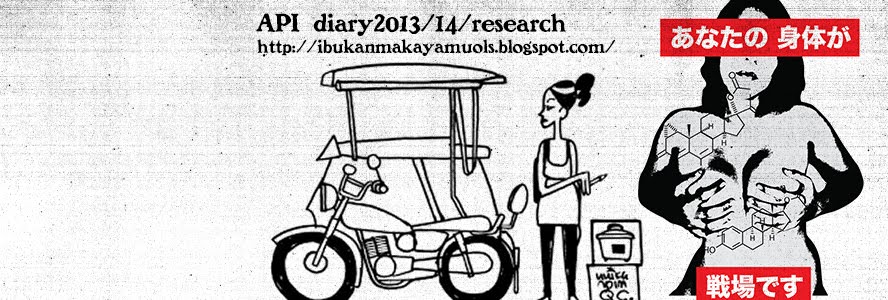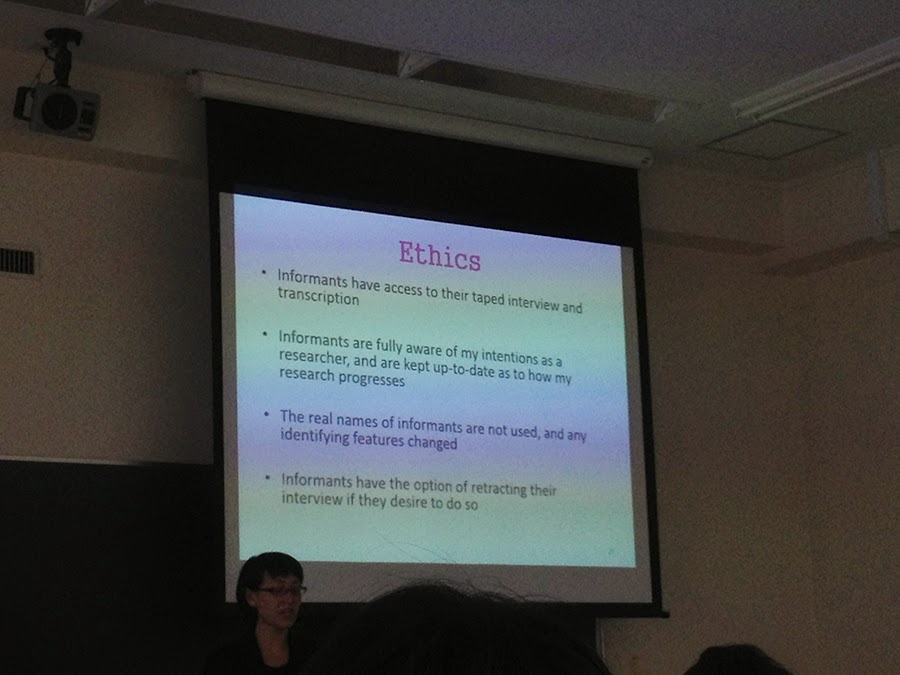malaisea media since 80s
Every country has got its own socio-political history and background thus shaping its citizen mind and behaviour. For example Malaysia, has a race base system, thus transwomen are also divided by race, class, interests and also between who are beautiful means very passable, barely pass and non-passible. Most malay transwomen naturally or mostly coming from religious family background thus some perform prayer as a male (as fear that the prayer will not be accepted by god and some as female who believe that god will accept the prayer regardless sex , gender, race etc). Indian transwomen have their own group or organization called Thirunangai, and i never heard of any Chinese TS group. From what i see Chinese TS individual who has transitioned go on and live their own life in society as the majority cisgendered women would do. Most probably the need to have a group or organization is coming from group that economically challenged or from poor transwomen who mostly doing sex work where in earlier life she ran away from home at a young age and survive on the street.
Since the early 80s government owned media has spread a lot of fear and prejudice towards transwomen, and the public Some local malay dramas portrayed transwomen who passed away or died, during her burial the people can't even carry her body because of the weight, probably trying to portrayed she's weight by her sin after transition or sex change. Another story, the earth would not accept the body as well by flooding the grave with water.
Because of all this continues fear and horror being a transwoman, some transwomen were scared to become themselves or transition and later in life regretted because too late or the body further masculinized and gave up, live life like a zombie or half awake and half dead.
One story i encounter myself when i was young is inside a local version of 'Mad magazine' called 'Gila-gila', 'Gelihati' etc. I forgot who was the artist but the story is about this person from a village, very effiminate male, the village people love to make fun of her, one day she went to the city Kuala Lumpur to work and transitioned. Then after awhile she get back to the village. She was so sexy and pretty, there was this guy who fell in love with her, he even peeping her shower outside. (In village in the old days the shower or bathroom is outside the house with only 4 walls, some without roof). He fell in love with her and want to propose to her and get married. Then one day she move to Kuala lumpur and then back to the village. When the guy who fell in love with her heard that she came back, he ran straight to her house and knock the door. He was greeted by a man. He frantically ask the man wether he know the woman who use to live here, and eventually the guy told him that he was her. The guy dreams and hope crushed. S / he de-transitioned. At the end, i felt like this is not the story that i would like to have. I would fuckin die as a woman that's what i kept telling myself. I hate this kind of story but it was out there in public, with many other stereotype that shape the society or the malay mind about transwomen.
According to KakSu our senior or mak ayam besar, she has work and met with so many kind of transwomen since working at the community centre since the 80s. Went through many burial. She hasn't witness any single scenarious with the body became very heavy and the grave flooded, thunderstorm etc, etc. Most of them get a peaceful proper burial (despite the burial in male way in islamic burial). Even when you die, the malay society would not give you or accept you fully) probably the fear of gods wrath and hell fire.
I remember few years back doing one of my freelance work with women activists, our project was to produce lighthearted comics online. Poking fun at the religious authority, syariah law, patriarchy in our society, government, laws. One of the issue that came up at that time was the ministry of information new law that requires any lgbt / trans characters must die at the end of the movie or repent and go back to the right path whatever that means. Even before they rule out this phobic laws the've already been doing it for ages. It only materialized recently. I wonder if this is the reason why some of the TS / TG at the time travelled or migrate to Europe and other countries and live their life to the fullestest. The environment to live as a transwoman was very toxic, created by the government owned media. Even when i was young prior to my transition my mother ask me wether I want to be like this famous well knowned comedic effiminate actor. She couldn't even muster or imagined for me to be a woman because the word out there at that time was you can only be woman if you are born with two sex organ. That was their logic. The majority of cisgendered malay minds. Only people born with 2 sex organs can choose wether to become male or female. Even hermaphrodites come with many variations, and when asked some of them are happy to be who they are without having to choose to become male or female. They just happy to live with 2 or ambigous sex organ.
Since the early 80s, the time i was living and growing up. I've met many transwomen. Almost all are passable and beautiful and from my family circles, most have the idea that only hermaphrodite can transition to be woman and most transwomen who transitioned and lead happy live to the fullest and some have their owned family and adopt children of their own, their stories were never out there, non-existent.
I guess this is why i'm doing the project. To tell the other many stories, happy stories, success trans stories that was never told or talk about in public of the malay society.
Philippines is a Catholic country. But they have a long history of the LGBT members being out and proud. They have a long history of gay culture since the American touch their soil but during that time everyone who's non-heterosexual was labelled 'Bakla' in a way that blurred the boundries between gay and transwomen in society's perception.
Majority of Philippinos are poor but many LGBT people within society freely expressing themselves or live fully and it seems there are high tolerance towards LGBTIQ people in the society. They have a long traditions of beauty pageant and its celebrated oftenly every week and every month in different boracay or section of the cities. LGBT members from every spectrum evidently very visible in public For transwomen there are many type as well often very feminine while some still in the process or just happy beng who they are.
In Japan, so far i haven't found any transwoman NGOs or what they call NPO here profit organization). Mostly all LGBTIQ organization here are a mix. No specific Transwomen or Transmen organization. The LGBTIQ group here also are called SekMai which is a short form for sexual minority. Some people i met describe society here there are gaps between the SekMai and the straight people.I wonder if the term 'SekMai' are coming from the straight people to draw the line between the majority straight to the minority like how in Philippines the term Bakla was coin from the past to describe the majority non-heterosexual. And in malaise how (most prob coming from male who felt threatened) by the queer, effeminate male the derogatory term Pondan / Bapok was born which intentionally to disgrace the queer people. Most transwomen who passed the male puberty and develop male physical characteristics like the browbone, adam apple, broader shoulder, bigger bones and feet, hairy arm and legs will experience discrimination from society.

































